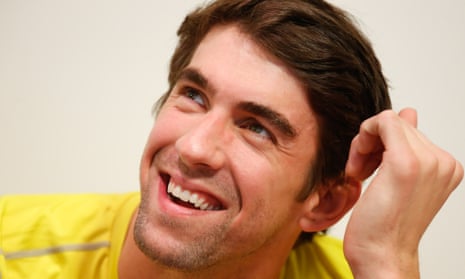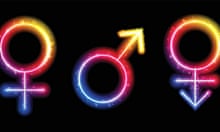Being intersex isn’t itself headline-worthy and, more importantly, our lives aren’t headlines. We’re just people who happen to be intersex.
But this week, Taylor Lianne Chandler’s claim that she has been dating Olympic swimmer Michael Phelps made headlines everywhere – and not because of his celebrity status or their age difference. This story has been wildly popular because Chandler identified as intersex.
I woke up to a flurry of activity on Facebook this week from friends who were upset about the newest set of articles “revealing” that someone in the media spotlight is intersex. My chest felt heavy, and I hoped this wouldn’t be what it always is.
I scanned the headlines already half wincing, knowing I’d be disappointed: reporters both write that she was “born a man” and refer to her as intersex, as though those are the same thing. The word “scandalous” was used, though it’s hardly a surprise that Phelps has a girlfriend. In one headline, Chandler “admits” that she’s intersex, as if she’s confessing to a crime. Much of the coverage inaccurately refers to intersex to as a gender identity, using it as synonymous with transgender. Some press accounts detail what Chandler’s genitals looked like at birth or look like now. Readers are invited to wonder whether Phelps will continue the alleged relationship with Chandler knowing that she’s intersex – to ponder, in effect, whether anyone accepts intersex people enough to date them at all.
I turned away from my laptop, disgusted.
My life is busy but mundane – and it has a normalcy that’s not reflected in the sensationalized framing of Chandler’s life’s. I can’t relate to the media’s stereotypes of intersex people: they just aren’t about me – and others like me – at all.
I’m a person just like anyone else, who happens to be intersex. So why do our lives and our bodies and our identities continue to be written about as though we’re so different over and over again?
Being born with atypical sex traits isn’t something I’m conscious of most of the time – I’m too busy going to work, making plans to meet up with friends, buying groceries, you know, standard life stuff. I have a life, and being intersex is part of that life, but it’s not the only part or even the dominant part. But the part of my consciousness that being intersex takes up is a pretty great one: I love who I am, and I love my body, my identity, my intersex friends. I’m out to many people in my life, and no one treats me weirdly, considers it “scandalous” that I dare to leave the house or wonders how on Earth my girlfriend can “accept” me and find me desirable.
Intersex people in popular culture are still too often portrayed as shocking, used as a plot twist in the medical drama right before the cut to commercial, played for laughs as a cheap punchline about “hermaphrodites” that seems to come out of nowhere. Whenever it happens, it instantly ruins my mood because it feels like, when we’re thought of at all, we’re conceptualized as biologically impossible half-men, half-women. We’re seen as objects of curiosity, or of fetishization; or perceived as medical anomalies and something to be “fixed”. The Oxford English Dictionary’s definition of intersex actually uses the word “abnormal”.
None of that is accurate.
To the media outlets interested in writing truthfully about intersex people: focus on who we are as human beings. Raise awareness that we exist, and that we’re fighting for our basic human rights: it’s been routine since the 50s to medically – often surgically – alter intersex kids’ bodies without their consent, so that we can live as “normal” girls and boys. Intersex activists like myself have been working to stop these violations since the early 90s in the UK and the US – and now globally.
There are some opportunities for journalists to shine an important light on the issues that intersex people face in a responsible way – for instance, by covering Indian runner Dutee Chand’s ban from competing in the Commonwealth Games and, maybe, the Olympics for having naturally high testosterone levels. (Though, coverage of South African runner Caster Semaya hardly gives me hope for that.) There are articles that I want read, to see exist in the world and in which I could see myself reflected – but we can’t be written about as a props or oddities. Reporters need to write about us as the complex people we are, and about us as more than our identities as intersex people.
The number of articles published about Chandler is probably increasing every minute. I’m not going to read them. Stories that reduce her humanity to her being intersex aren’t worth my time, or anybody else’s.




